What Is Media Buying for Business?

Building a brand is hard work. It requires focusing on the finer details, such as corporate colors, and creating a dynamic logo design. It also requires big-picture planning, ensuring you have a solid marketing and advertising plan in place.
That’s where media buying comes into play. Marketing cannot survive on catchy jingles or flashy photography alone. It requires you to capture the attention of your target audience at the right time and place.
What Is Media Buying?
Media buying gets a brand’s message in front of its target audience. It’s the process of purchasing ad space and time on online and offline platforms, depending on where your audience is. Media buying can reach a target market through traditional marketing channels, such as television, radio, or print, or through digital marketing channels, such as websites, social media, or streaming.
When media buying is performed effectively, it allows maximum exposure at the lowest cost to the brand. ROI builds as you further refine your target and message.
Of course, media buying only excels when it’s an integral part of your overall marketing strategy. Ads only work if they match your goals. That’s why media planning is important to get more out of each ad you place.
The Difference Between Media Buying and Media Planning
Media buying can only be effective with the proper ad placement. The details must be in place to understand what type of ad you’ll need. In today’s environment, media buying occurs in one of two ways:
- Direct: Media buyers build relationships and connections with individual sources to negotiate ad placement
- Programmatic: Media buyers rely on automated technology
Which is right for you? That will be determined during the media planning phase. Media planning helps you decide what media will be most effective for reaching out to a specific audience with your message in mind. Media planning isn’t just about advertising; it’s for any media campaign you choose to release to the world.
Why Media Buying Should Be a Part of Your Strategy
On the surface, media buying might seem simple. You find an ad space, create an ad, and start the campaign. However, effective media buying hinges on the transactional part of moving your message out through the media channel.
When you work with media buyers who are experienced at their job, you’ll benefit from the relationships they’ve created and nurtured over time. They have a better feel for what’s possible using different channels. They understand what works, how to increase conversions, and do so at the best price possible.
There are many reasons to forage a relationship with a successful media buyer, including:
- Better campaigns: Media buyers do this for a living. They understand the nuances of getting the biggest bang for your money. You utilize their knowledge of relationships, timing, location, and crafting the best campaigns for the target you’re reaching out for.
- Better positioning: Ever thrown money at a bunch of marketing strategies to see what sticks? Media buying gives your money stickiness. Because they have experience with engagement and placement, they have a better feel for locations for your ads and the best times to run them.
- Better deals: This is all about relationships and networking. Because media buyers have a Rolodex of media resources to call on, you’re buying into a robust network that helps you gain more traction while putting your marketing dollars at a lower risk.
Media Buying Process
Is media buying for you? Can you see it as an essential step in your overall marketing strategy? As you map out a plan, you’ll clearly define your goals.
Start with a strategy
Marketing always starts with a strategy, and media buying is no different. Before you launch a new campaign, you’ll have to define your ultimate goal.
What do you hope to accomplish? Are you increasing website traffic, looking to expand brand awareness, or announcing a new product for sale? Breaking down your goals into bite-sized chunks will help you get clearer in your message and better track your results.
You’ll also need to clearly define your budget, knowing how much money you’ll spend and for how long.
Identify Your Target Audience
The clearer you can be with who you’re targeting, the easier it will be to speak their language. Media buying lets you target an audience based on detailed demographics, including location, behavior, preferred device, interests, web browsers, and more.
While you may have a customer avatar built for your brand, this takes it to the next step by clearly defining who the campaign will target and what media source is most appropriate to reach them.
Start the Campaign
This varies depending on whether you’re using direct or programmatic ads. However, in both cases, you’ll create fully trackable ads, on target, and on budget. Media buyers have a good understanding of what it takes to start the process and what to look for as the campaign continues to run.
Optimize
Every marketer fears turning a campaign on—and nothing happens. In fact, you might have lived through that a time or two yourself.
With an experienced media buyer, as soon as the campaign launches, they start gathering information. This is important at this stage because it allows pivoting to move the data in a new direction. For instance, if several ads are running and it becomes clear one is performing far better than the others, the media buyer can reallocate funds to take advantage of better results.
Is Media Buying Right for You?
With media buying, every campaign is carefully thought out. You’ll never run ads on “trial and error.” You’ll always have a clearly defined strategy, and once your ads are in place, they’ll be monitored closely to optimize performance. You can pivot and change as you track results, creating a practical approach to meet your marketing goals and objectives.
Is media buying a strategy you’re ready to explore? Reach out to the team at InnoVision today. We’ll take care of your business like it is our own.

















